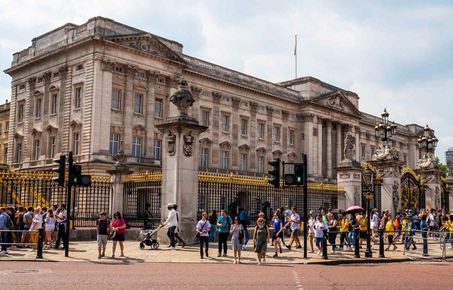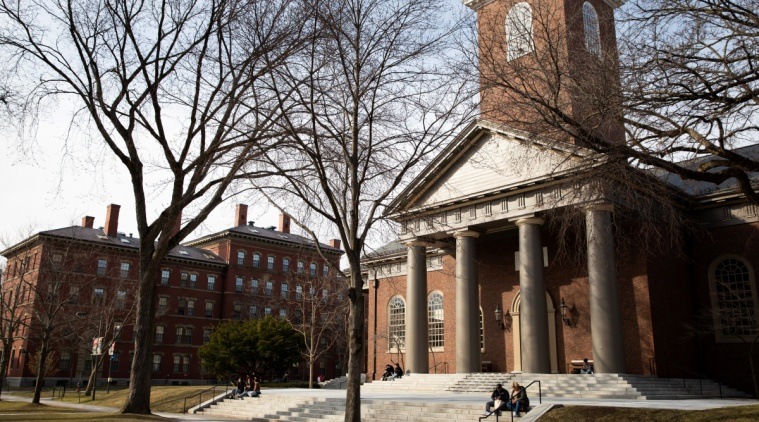Developing nations: UK’s ‘better and brighter’ visa explore
The government put a draft would catch the world’s “brightest and best” and benefit the British economy in developing countries India, Africa, China and so on.

Britain’s “High Potential Individual” visa program opens for graduates from 37 ranked world universities in Australia, Canada, China, Europe, Hong Kong, Japan, Singapore and the United States to come to the country for two years without any job offer.
The government put a draft would catch the world’s “brightest and best” and benefit the British economy. Critics, however, say the plan nurtures global inequalities and discriminates against most developing countries.

It did not put a cap on the number of applicants who would be accepted and said that graduates with doctorates would be allowed to stay for three years.
“We want the businesses of tomorrow to be built here today,” Rishi Sunak, the British chancellor of the Exchequer, said in a statement. “Come and join in!”
The program is in line with Britain’s post-Brexit visa policy, which has made entry easier for high-skilled workers and harder for those considered low-skilled ones, as well as asylum-seekers. Visa pathways include a skilled-worker visa for people who have received a job offer in Britain, a visa for people considered a “leader or potential leader” in certain fields, and a program to allow international students who graduated from British universities to stay for at least two years.
Mane, the New York University student, said that after he graduates with a master’s degree, he will be allowed to stay in the United States for three years. After that, his prospects of getting another visa are uncertain.
Many academics, students and politicians in Britain, Africa and India have spoken out against it, even though doing the best, saying that the universities that students attend are largely influenced by their social and geographical portals and that the new scheme rewards those who are already more privileged.
“I would not be eligible,” said Deepti Gurdasani, a clinical public health researcher and a senior lecturer in machine learning at Queen Mary University of London, who went to a university in India that is not on the list. “It is very hurtful to find that you’re devalued and that people within your community are devalued because of arbitrary thresholds.”
Gurdasani said that as a student, she got one of seven spots to study medicine at Christian Medical College in Vellore, India, for which thousands of students competed. There, she received what she said was rigorous training, seeing patients with very complex illnesses, including infectious diseases, and building expertise that she then brought to Britain.

Madeleine Sumption, director of the University of Oxford’s Migration Observatory, which tracks immigration patterns, said the new policy was an innovative idea, but with drawbacks.
“How do you decide who the highly skilled people are?” she asked, adding that the current policy would admit someone who just scraped through Harvard but not the highest-achieving students at a top Indian university.
Introducing other criteria for assessing applicants, such as grades, would be fair, she said, but much harder to enforce. “It’s very convenient for the government to just have an institution be on the list or not.”
Britain’s Home Office said the list had been compiled from leading global university ranking lists and that new international institutions could move up the ranks and later join the list.
However, university rankings are widely criticised in many quarters, with critics saying they often fail to grasp the quality of teaching and often overemphasise research over instruction.
Phil Baty, who is responsible for developing the methodology of the Times Higher Education World University Rankings, which is among those the British government used, said in a post on LinkedIn that “this isn’t what we had in mind when creating the rankings.”
Zubaida Haque, executive director of Equality Trust, a British charity, said that in offering the new visa, the British government failed to grasp that race, class and financial barriers prevented many deserving students from reaching top universities.
“This scheme presents that the government does not understand the systemic racial and class inequality in this country, and they clearly do not understand it anywhere else,” Haque said. “It’s an elitist visa scheme.”
She put that the program gave an unfair benefit to those who needed it the least. “There is likely to be a good pipeline for these graduates anyway,” she said.
“If UK businesses and governments want to play a role in addressing the biggest challenges of this century — energy access, fighting climate change and pandemics — they need to be including skills and knowledge from developing countries,” he said.
“I might not get a degree in the 50 top universities, but I have high potential, and I want to achieve great things,” he said. But, he added, “It’s their loss, not mine.”






